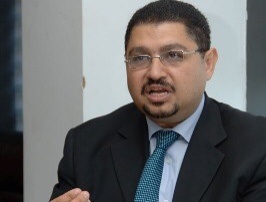Sudan summons Libyan charge d’affaires amid renewed accusations of militia support
October 2, 2014 (KHARTOUM) – The Sudanese foreign ministry announced on Thursday that it summoned the Libyan Charge d’affaires (CDA) to protest recent remarks by an army general in which he accused Khartoum of backing extremist groups in the North African nation.

Sudan’s foreign ministry reiterated its denial of meddling in Libyan internal affairs or taking sides in the ongoing conflict.
“The misleading information transmitted by media that is attributed to Libyan [army] officer claimed Sudan’s interference in the internal affairs of his country,” the ministry said in a statement adding that this information is “unfounded”.
It denounced attempts seeking to involve Sudan in the Libyan conflict and noted the Sudanese government’s recognition of the legitimacy of the elected Council of Representatives, which meets in Tobruk.
It also called on the Libyan rivals to enter into negotiations to bring about reconciliation away from armed conflict which is wasting the energies and resources of the Libyan people and adversely affecting security in the region.
The ministry’s Undersecretary Abdallah Hamad al-Azrag, according to state media (SUNA) stressed that his country stands at equal distance from all parties in Libya.
The Libyan diplomat for his part expressed regret over the “untrue” statements saying it will cast negative lights over the strong relations between the two sister nations. He affirmed Libya’s desire to enhance its relations with Sudan.
He also thanked Sudan for supporting the 2011 Libyan revolution against Gaddafi and its recognition of the parliament in Tobruk.
A statement by the Libyan government last month claimed that a Sudanese military transport plane bound for Tripoli airport, which is currently under the control of an Islamist armed group known as Misrata, entered its airspace.
It noted that this action by Sudan violates Libya’s sovereignty and constitutes interference in its affairs, adding that they formally informed the Sudanese military attaché that he is persona non grata.
However, Sudan’s foreign ministry and National Intelligence and Security Services (NISS) asserted that the plane mentioned in the media that landed at Kufra airport carried and unloaded supplies for use by the joint Sudanese-Libyan border control forces at the request of its Libyan commander.
Colonel Mohammed Hejazi, a spokesman for the Libyan National Army that is loyal to retired Libyan general Khalifa Heftar, said at the time that investigations are underway on the landing of the aircraft.
“This is not the first time, but the recent incident is in the process of being investigated and scrutinized. There is an intelligence war that emerged from under the cloak of Muslim Brotherhood,” he told Sky News Arabia TV.
He added that intelligence bodies in states that are supportive of the Muslim Brotherhood were involved with funding arms shipments which coincided with news that Khartoum received Nouri Abusahmain, president of the previous session of the Libyan General National Congress (GNC) which was dominated by Islamists and is challenging the legitimacy of the elected parliament.
The GNC refused to stand down at the end of its term earlier this year and extended it and extended its mandate another year which prompted General Heftar to call for its dissolution and forming an interim government to oversee new elections.
Last May, pro-Heftar forces launched a major offensive against Islamist militias dubbed as ‘Operation Dignity’.
Libya’s government and elected House of Representatives last month relocated to the remote eastern city of Tobruk after an armed group from the western city of Misrata seized the capital Tripoli and most government institutions.
Those now in control of Tripoli have set up a rival parliament and government that have not been recognized by the international community.
Libya has been plagued by political infighting, with government and parliament unable to control militias that have continued to defy state authority since ousting Muammar Gaddafi in 2011.
It is widely viewed that Qatar, Turkey and Sudan are backing Islamist militias while countries like Egypt and United Arab Emirates (UAE) are backing Heftar.
Last August, the United States said that UAE and Egypt secretly bombed Islamist militia in Libya.
Sudan has vehemently denied accusations in recent months of backing any side in the Libyan conflict.
(ST)
